Tackling a New Build Garden
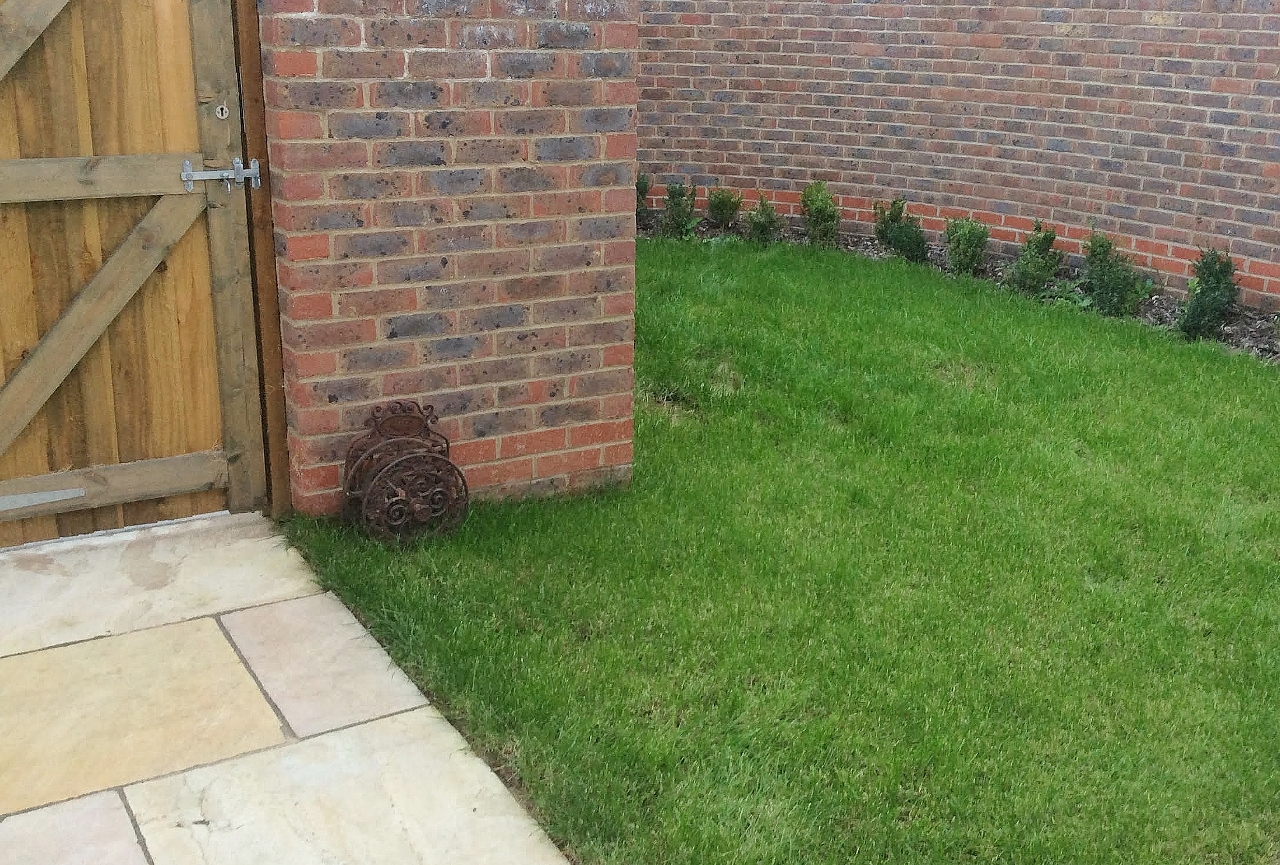 The garden of a newly built or restored property is an exciting prospect: a blank canvas to work upon, whether you tackle it immediately, or gradually develop it over the years. Some will want a plan to work to, others will want the garden to evolve over a period of time. Either way, the most difficult decision is knowing where to start. Maybe the builders have already laid turf, planted a few shrubs and the odd tree, laid some sort of terrace. But what lies beneath?
The garden of a newly built or restored property is an exciting prospect: a blank canvas to work upon, whether you tackle it immediately, or gradually develop it over the years. Some will want a plan to work to, others will want the garden to evolve over a period of time. Either way, the most difficult decision is knowing where to start. Maybe the builders have already laid turf, planted a few shrubs and the odd tree, laid some sort of terrace. But what lies beneath?
Sadly the ground has probably been compacted by machinery and the operations associated with building. It is unlikely that all of the rubble and debris of construction was cleared; some will have been buried. Any good topsoil that existed has probably disappeared and poor subsoil, often clay will be near or at the surface offering an unattractive prospect when it comes to cultivation and a very unattractive environment as far as the plants are concerned.
First things first
Whatever your plans, the condition of the soil is the foundation of your garden. So before you do anything else it's time to tackle the basics. If you are planning any hard landscaping in the form of a patio, fencing or the erection of garden buildings do that first. These operations only lead to more potential soil damage, so get them out of the way at the outset. It's also the opportunity to tackle any drainage issues. If water lies on the paving, or in puddles on the grass, it will only cause problems over time. It's better to scrap what's already been done and do it again properly, rather than living with what is there.
Whether you are working to a master plan or not, do plan the positions of key areas. Taking a few pictures from the windows of the house and from the places where you will see the garden most often is a great way to give a clearer vision of what things might look like: the position of the shed, the size of the lawn and also surrounding buildings. This helps to plan the positions of beds, borders and trees.
Getting the lawn in shape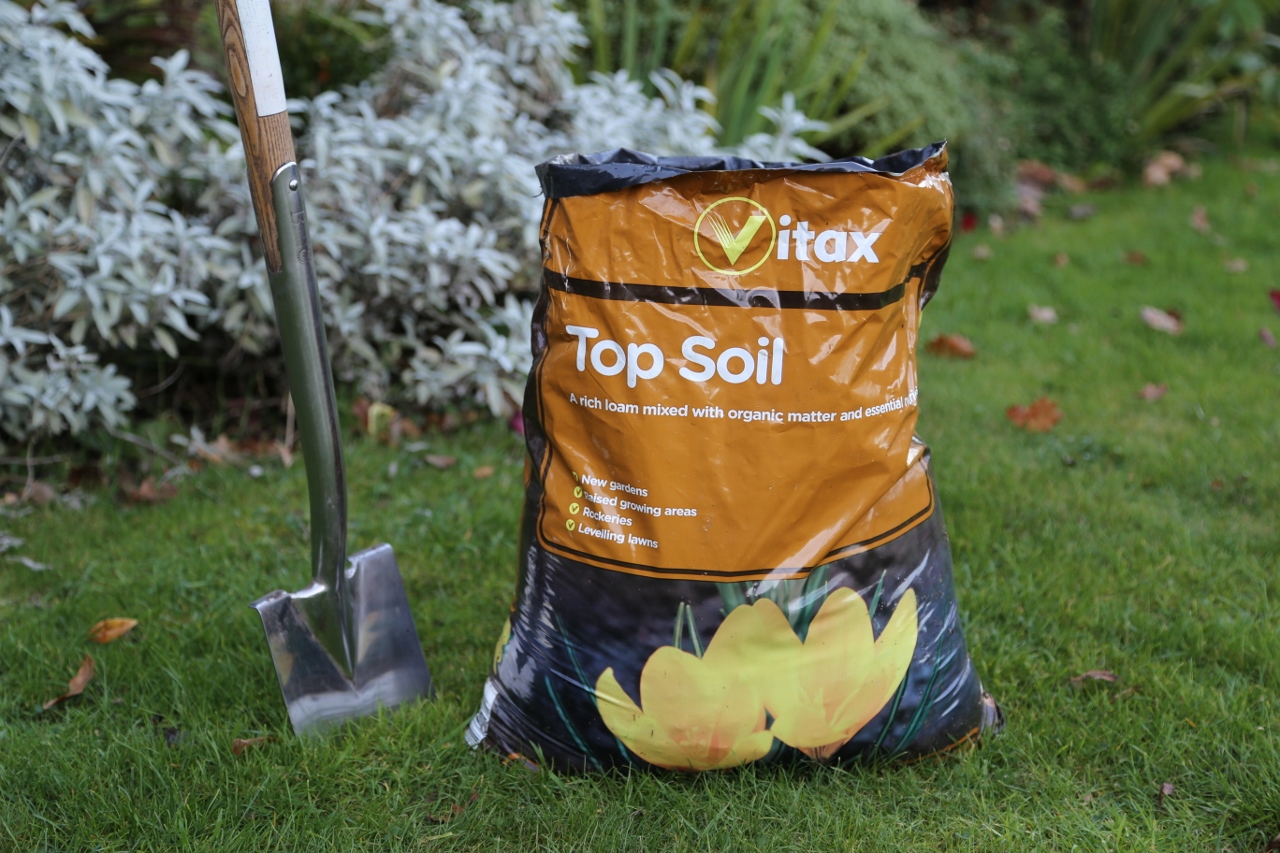
Make sure your lawn is a good shape that is easy to mow. Awkward, inaccessible corners are best planted with ground cover or covered in gravel rather than left as scruffy grass that detracts from the overall impression. If the grass is in really poor condition, scrap it and start again. However if it is just uneven you may be able to put that right by lifting the turf carefully with a spade, where there are any depressions, and filling the dips with Topsoil.
Preparing to plant
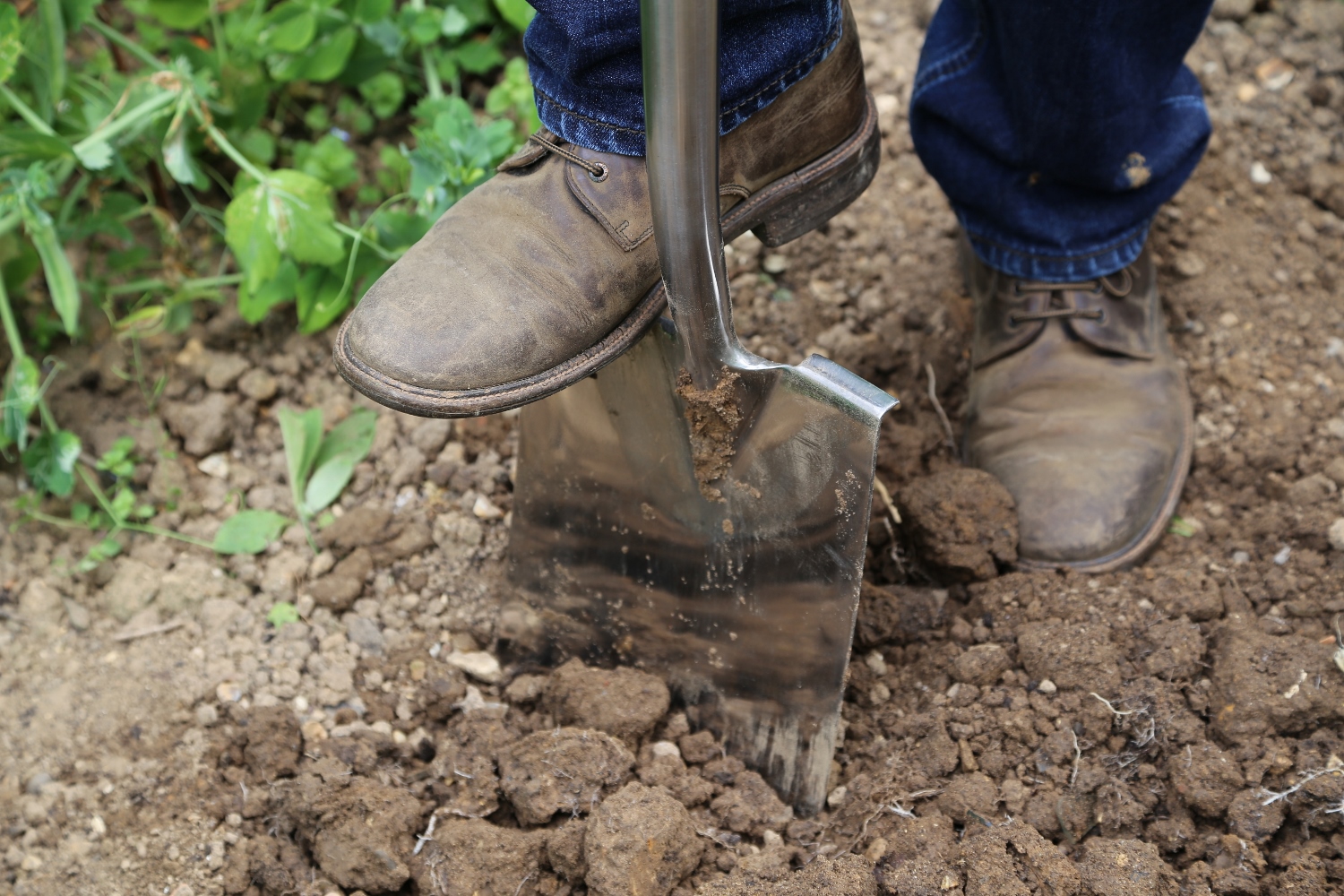 When planning your planting areas be sure to make them big enough. A half metre wide border along a fence is just not wide enough to accommodate even average shrubs and perennials: the result will be a border of low plants and a very visible fence line. Never the most attractive prospect.
When planning your planting areas be sure to make them big enough. A half metre wide border along a fence is just not wide enough to accommodate even average shrubs and perennials: the result will be a border of low plants and a very visible fence line. Never the most attractive prospect.
Before you think about planting, sort out the growing conditions. Often areas that have been planted by the developer have been poorly prepared. A layer of bark chips over the soil surface often conceals little in the way of soil beneath; investigate. Make sure any existing plants are to your taste, especially trees and shrubs. If ground preparation is lacking, lift what is already there and dig over the area thoroughly. Add plenty of organic matter: Farmyard manure is ideal. This really helps to boost the humus content of the ground, enabling it to hang on to water and nutrients more successfully.
This should be the basic preparation in all planting areas. However digging often reveals the roots of perennial weeds, or 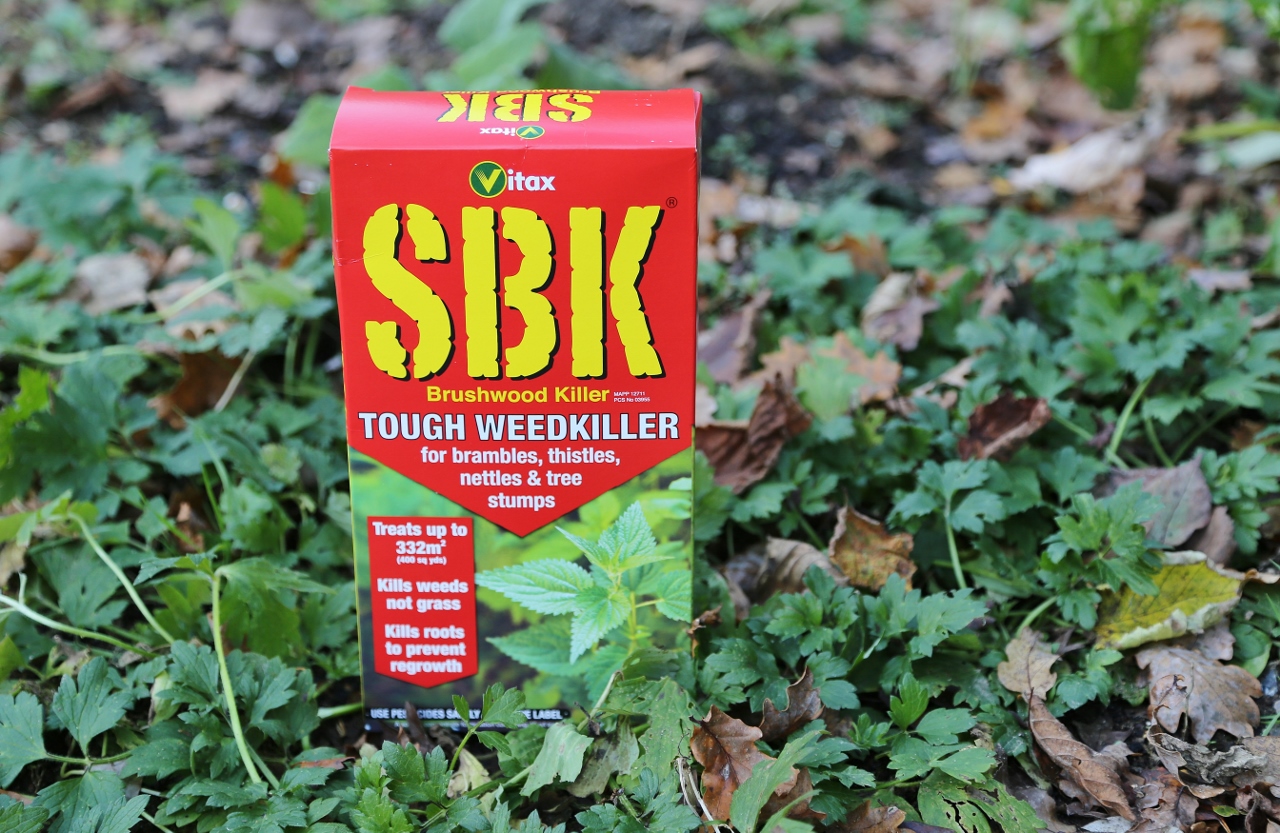 you may have noticed them growing amongst existing plants or in empty borders. It is better to solve the problem before you plant and this is best achieved by using a strong, but non-residual weedkiller. Vitax SBK Tough Weedkiller should be applied to the growing weeds, in leaf. It then travels down through the plants and kills the roots. It is best to delay planting until you have banished those perennial weeds. They will only infest your plants later.
you may have noticed them growing amongst existing plants or in empty borders. It is better to solve the problem before you plant and this is best achieved by using a strong, but non-residual weedkiller. Vitax SBK Tough Weedkiller should be applied to the growing weeds, in leaf. It then travels down through the plants and kills the roots. It is best to delay planting until you have banished those perennial weeds. They will only infest your plants later.
Some may give the impression that laying a weed control membrane over the soil surface and planting through it is a solution. This will give control of some annual weeds that grow from seed on the soil surface. However perennial weeds will quickly find the planting positions and grow up through your plants causing long-term problems.
Choosing your plants
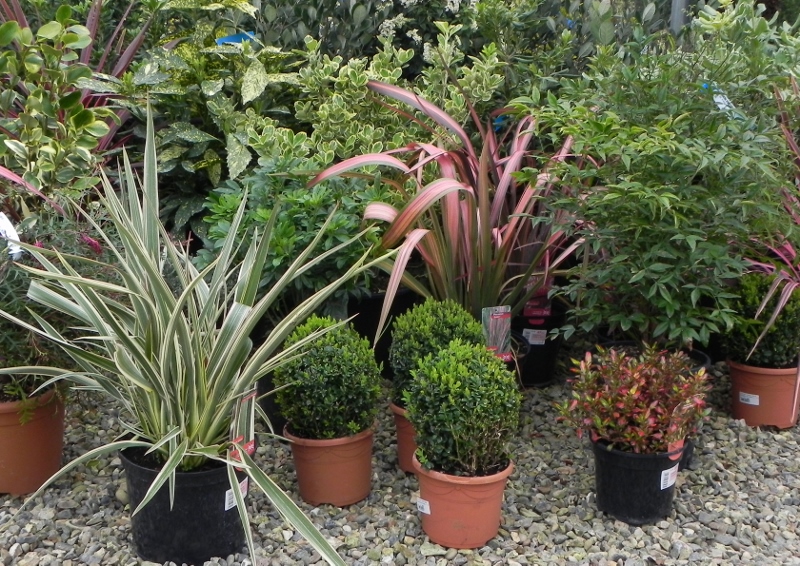 Of course the plants are the most important element in any garden. Although you have preparation work to do before you get round to planting, it is worth thinking about what you will grow; this should influence the width and perhaps the shape of your planting areas.
Of course the plants are the most important element in any garden. Although you have preparation work to do before you get round to planting, it is worth thinking about what you will grow; this should influence the width and perhaps the shape of your planting areas.
If you want all-year round interest you will need to include some evergreens. Shrubs give the planting structure because they do not die down in winter. Some have colourful stems which look good when the leaves fall. Perennials are ideal to add summer colour, and you could also leave space for a few seasonal bedding plants which you replace every year. Most successful planting schemes consist of a combination of different plant types.
The biggest mistake is to go to the garden centre and buy everything at once: all those tempting plants that are looking good. This may give you instant impact, but your garden will probably be dull for the rest of the year.
Andy McIndoe for Vitax
Your login details have been used by another user or machine. Login details can only be used once at any one time so you have therefore automatically been logged out. Please contact your sites administrator if you believe this other user or machine has unauthorised access.












